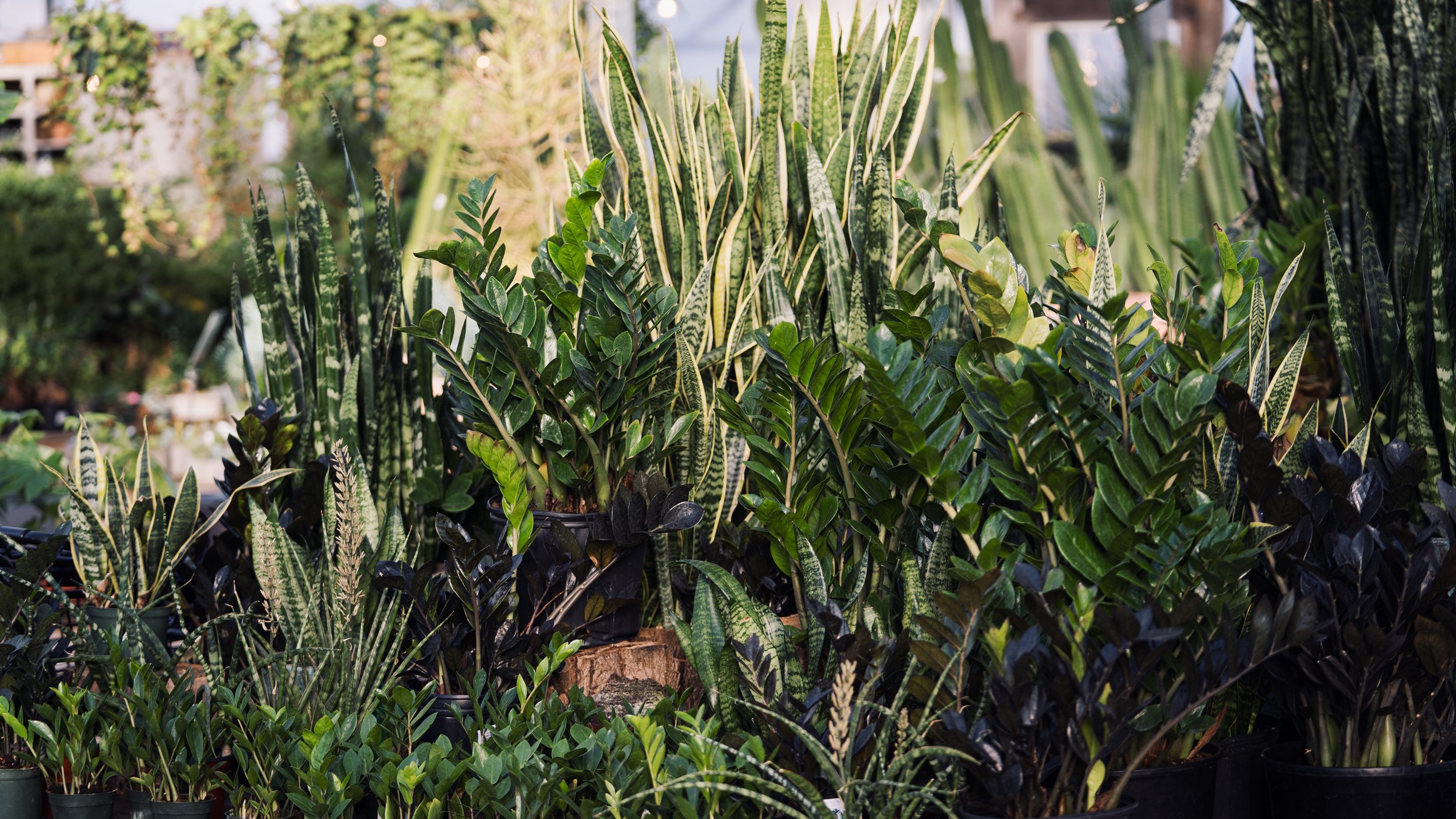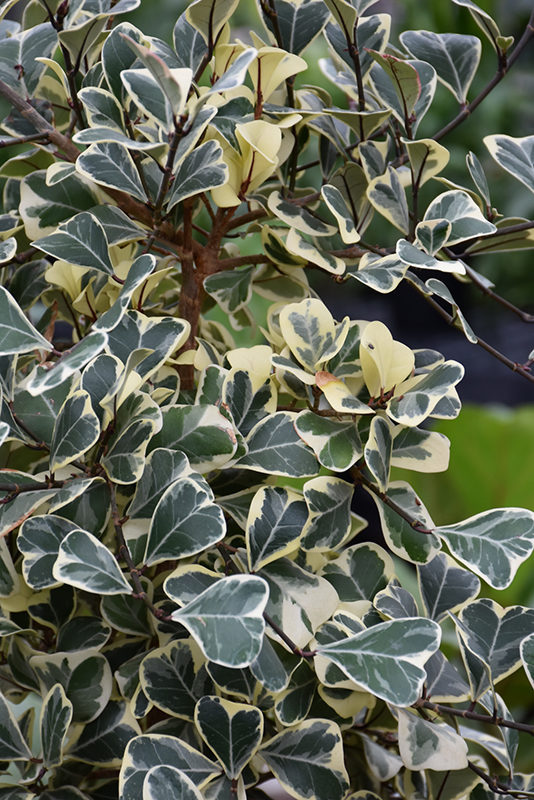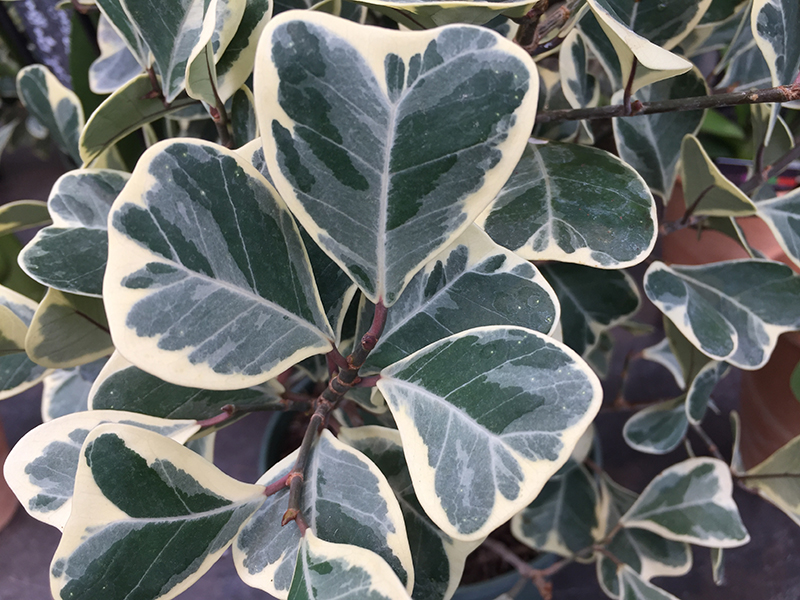
use our plant finder to help choose the perfect tree, shrub, perennial, annual, or houseplant to match your unique needs & style.
all the plants we love
Variegated Triangle-leaved Ficus
Ficus triangularis 'Variegata'
Height: 5 feet
Spread: 3 feet
Sunlight:
![]()
![]()
Other Names: Hearts in the Snow Ficus, Triangle Fig
Description:
An attractive, long lived accent plant, ideal for indoor growing in bright areas; a bushy, upright appearance featuring triangular, dark green leaves with contrasting cream margins; low maintenance and easy to care for; may drop leaves if moved
Features & Attributes
Variegated Triangle-leaved Ficus' attractive fan-shaped leaves remain dark green in color with distinctive creamy white edges and tinges of grayish green throughout the year on a plant with an upright spreading habit of growth.
This is a multi-stemmed houseplant with an upright spreading habit of growth. This plant may benefit from an occasional pruning to look its best.
Planting & Growing
When grown indoors, Variegated Triangle-leaved Ficus can be expected to grow to be about 5 feet tall at maturity, with a spread of 3 feet. It grows at a medium rate, and under ideal conditions can be expected to live for approximately 50 years. This houseplant will do well in a location that gets either direct or indirect sunlight, although it will usually require a more brightly-lit environment than what artificial indoor lighting alone can provide. It does best in average to evenly moist soil, but will not tolerate standing water. The surface of the soil shouldn't be allowed to dry out completely, and so you should expect to water this plant once and possibly even twice each week. Be aware that your particular watering schedule may vary depending on its location in the room, the pot size, plant size and other conditions; if in doubt, ask one of our experts in the store for advice. It will benefit from a regular feeding with a general-purpose fertilizer with every second or third watering. It is not particular as to soil type or pH; an average potting soil should work just fine.
There are many factors that will affect the ultimate height, spread and overall performance of a plant when grown indoors; among them, the size of the pot it's growing in, the amount of light it receives, watering frequency, the pruning regimen and repotting schedule. Use the information described here as a guideline only; individual performance can and will vary. Please contact the store to speak with one of our experts if you are interested in further details concerning recommendations on pot size, watering, pruning, repotting, etc.
-- THIS IS A HOUSEPLANT AND IS NOT MEANT TO SURVIVE THE WINTER OUTDOORS IN OUR CLIMATE --
can’t find what you’re looking for? let us know
info@wilsonnurseriesky.com
frankfort: 502.223.1488
lexington: 859.269.5795


